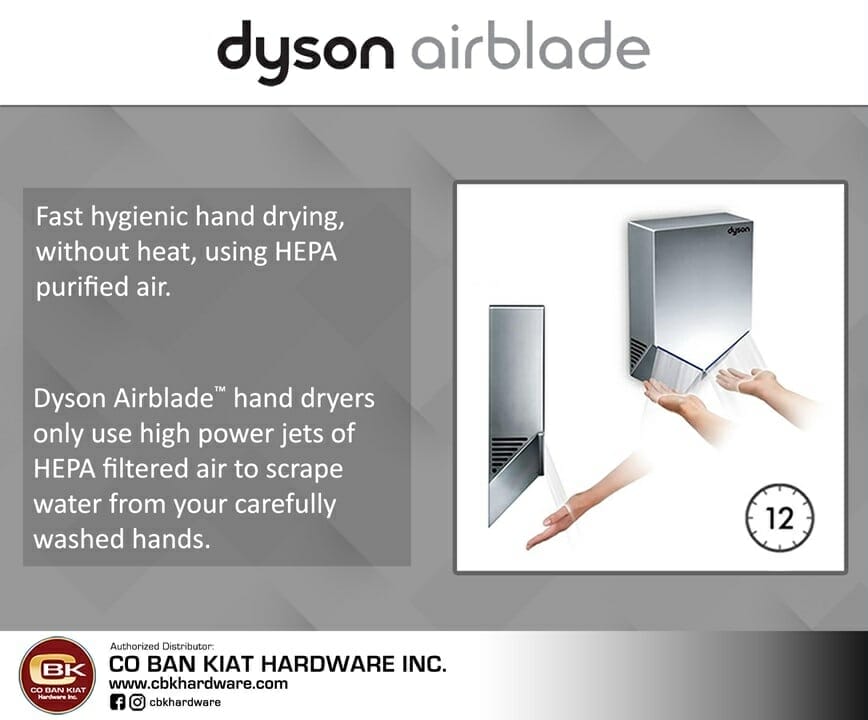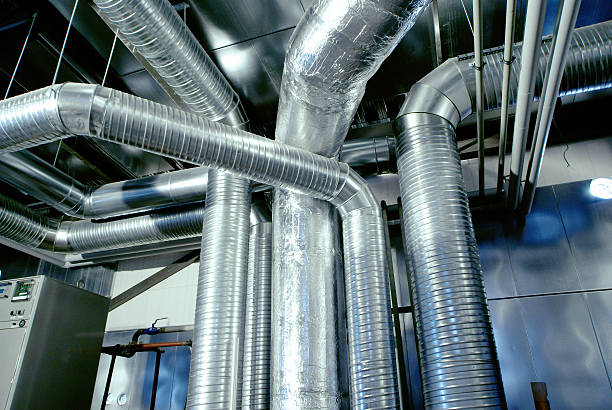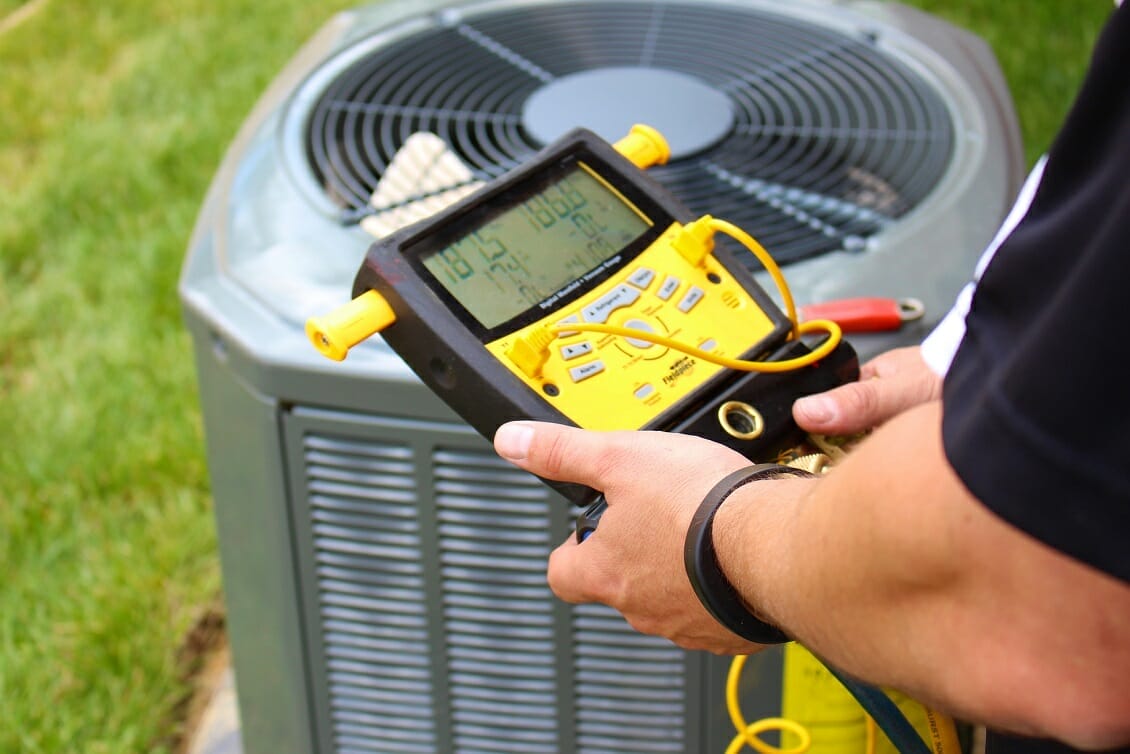Before deep diving into an HVAC contractor and the services they provide, such as new HVAC installation or repair, you might be wondering what is HVAC and what HVAC means.
Well, HVAC is an acronym for “heating, ventilation, and air conditioning.” It is a system used to regulate the temperature, humidity, and quality of the air in a space.
What is heating in HVAC? Heating is a system in HVAC that is used to warm up the air in a space. Heating can be done using steam, hot water, or gas.
What is ventilation in HVAC? Ventilation is a system in HVAC that is used to take the air out of the space.
What is air conditioning in HVAC? Air conditioning is a system that cools the air in a room down to make it more comfortable. It also removes humidity from the air to stay cool and dry.
What are the HVAC components?
The three main components of an HVAC system are a furnace, an air conditioner, and a ductwork system.
An HVAC contractor uses a furnace in the colder months as the main source of heat.
1. Furnace
A furnace heats air and then sends it through ducts to the rooms that need it.
2. Air Conditioner
An air conditioner is used in warmer months to cool the air down.
3. Ductwork System
A ductwork system is used to channel the air throughout your home. A ductwork system is a network of thin pipes that send air from the furnace or air conditioner to the rooms that need it.
How does HVAC work?
HVAC, or heating, ventilation, and air conditioning, is a crucial part of any home or office. Without it, we would be stuck in an uncomfortable environment. So how does HVAC work?
Furnace
The first part of the system is the furnace. An HVAC contractor uses a furnace to heat air and then sends it through a series of ducts to different parts of the building. The ducts are insulated to keep the heat from escaping.
Air Conditioner
The second part of the system is the air conditioner. An HVAC contractor uses an air conditioner to cool down the air and then sends it through the same series of ducts. The air conditioner also removes humidity from the air.
Ventilation System
The third part of the system is the ventilation system. An HVAC contractor uses a ventilation system to bring fresh air into the building and helps remove stale air from the building.
The benefits of HVAC
As the weather starts to warm up, now is the time to consider having your HVAC system serviced by a contractor. Regular maintenance on your HVAC system will improve its efficiency and prevent it from breaking down when you need it the most. Here are a few benefits of using an HVAC contractor:
An HVAC contractor will provide you with peace of mind, knowing that your system is in good hands. They will inspect your system and perform any necessary repairs or replacements to keep it running smoothly. In addition, they can offer advice on how to maintain your system and troubleshoot any problems you may have in the future.
An HVAC contractor can also help you save money on energy costs. A well-maintained HVAC system will run more efficiently, lowering your energy bills.
The different types of HVAC systems
There are many different types of HVAC systems used by contractors.
Split Type
The most common type of HVAC system used by an HVAC contractor is the split system, which consists of an outdoor unit and an indoor unit. The outdoor unit contains the compressor, condenser, and evaporator. The indoor unit contains the air handler and the furnace.
Packaged System
Another type of system is the packaged system, which is a self-contained unit that is usually installed on the roof of a building.
Geothermal System
The third type of system is the geothermal system, which uses underground pipes to exchange heat between the ground and the home or office.
Forced-Air System
Furthermore, another popular type of system used by an HVAC contractor is the forced-air system, which uses a furnace to heat air and then distributes the air through ducts.
Radiant Floor Heating System
Another popular type of HVAC system is the radiant floor heating system, which heats floors from below using hot water or electricity.
Mini-Split System
Finally, there are also ductless mini-split systems used by HVAC contractors in New Jersey, Austin, Chicago, and Colorado Springs. Mini-split systems do not require ductwork and can be used to heat and cool individual rooms.
There are many types of HVAC systems to choose from when selecting a system for your home or office. If you are from Chicago, Texas, Phoenix, or New York, you can simply search on Google for “HVAC contractor near me,” and you can find the best HVAC contractors to install heaters, ventilation units, and air conditioning.
Read the full magazine for free
How to choose the right HVAC residential system
There are a lot of things to consider when you’re trying to choose the right HVAC residential system for your home.
Here are a few tips to help you make the right decision:
1. Size of HVAC
First, you need to figure out what size system you need. This will depend on the square footage of your home and the climate you live in.
2. Type of HVAC System
Next, you need to decide what type of system you want. There are two main types: central air and ductless mini-splits. Central air is more common, but ductless mini-splits can be more energy efficient.
3. HVAC Contractor
Finally, you need to find a reputable HVAC contractor who can install your new system properly. Make sure to get several estimates and check references before making your final decision.
How to choose the right HVAC system for your office
If you are planning to have an HVAC system installed in your office, there are a few things you need to consider to ensure you choose the right one.
The first step is to find a reputable HVAC contractor who can assess your needs and recommend the best system for your space. Once you have a contractor lined up, they will help you choose the right system based on several factors, including the size of your office, the climate you live in, and your budget.
Here are a few tips to help you choose the right HVAC system for your office:
Size
The size of your office space will determine the size and capacity of the HVAC system you need. A smaller space will not require as much cooling or heating power as a larger one.
Climate
The climate where you live will also affect your HVAC system’s size and capacity. For example, if you live in a hot climate year-round, you will need a larger HVAC system than someone who lives in a cool climate that only heats up during the winter months.
Budget
You should always consider your budget when you purchase any type of HVAC system and hire an HVAC contractor near your area. If you don’t have the money for a large, expensive HVAC system, then it isn’t worth spending the money on one.
The heating process, according to an HVAC contractor
After the air is pulled into the return duct, it enters the furnace, where it is then heated by either gas or oil.
The heat exchanger is what actually heats the air. The blower motor then pushes the air through the supply duct and out into the rooms of your home. The heating process in your HVAC system starts with the return air being drawn into the system through the return duct. The air then enters the furnace, where it is heated by either gas or oil.
The heat exchanger is what actually heats the air. Once the air has been heated, the blower motor pushes it through the supply duct and out into the rooms of your home. If you have any questions about your HVAC system or its heating process, be sure to contact a qualified HVAC contractor.
The cooling process, according to an HVAC contractor
The cooling process in HVAC is a bit more complicated than the heating process.
To cool your home, your HVAC contractor will first need to assess the size of your home and the type of cooling system that will best suit your needs.
They will then install the necessary equipment and ductwork to deliver the cool air into your home.
Once the installation is complete, your contractor will test the system to ensure that it is delivering the correct amount of cool air into your home.
They will also make sure that the system is properly balanced so that all rooms in your home are being cooled evenly.
How HVAC affects your energy bill
As a homeowner, you’re always looking for ways to save on your energy bill.
You may not realize it, but your HVAC system greatly impacts how much you pay each month. Here’s how: Your HVAC system is responsible for heating and cooling your home. This means that it has to work harder in the summer to keep your home cool and in the winter to keep it warm.
The harder your HVAC system works, the more energy it uses – and the higher your energy bill will be. You can save money on your energy bill by making sure your HVAC system is running efficiently.
One way to do this is to have a professional HVAC contractor come out and tune up your system annually. They can clean and inspect your system to make sure it’s running properly.
What is an HVAC contractor?
An HVAC contractor is a professional who installs and repairs heating, ventilation, and air conditioning systems. HVAC contractors are trained in various disciplines, including ductwork, refrigeration, and electrical wiring. They also have a working knowledge of building code requirements and safety procedures.
HVAC contractors must be licensed in most states. To become licensed, they must pass an exam that tests their knowledge of the trade. Once they are licensed, they can work as an independent contractor or as part of a larger company.
Most HVAC contractors offer a warranty on their workmanship. This means that if something goes wrong with the installation or repair, the contractor will come back and fix it at no cost to the customer.
What do HVAC contractors do?
An HVAC contractor is a professional who installs and repairs heating, ventilation, and air conditioning systems. HVAC contractors are trained to work with various types of equipment and have the knowledge to troubleshoot problems with your system.
When you contact an HVAC contractor for service, they will first assess the problem and then give you a quote for the repairs. Once you have approved the repair, the contractor will schedule a time to come out and perform the work.
HVAC contractors use a variety of tools to repair your heating system. One of the most common tools they use is a multimeter. This device helps them test for electrical continuity, resistance, and voltage to diagnose problems with your system. Another tool they may use is an infrared camera.
How to choose an HVAC contractor
When it comes to choosing an HVAC contractor, there are a few things you should keep in mind.
First, you want to make sure that the contractor is licensed and insured. This will protect you in case something goes wrong during the installation or repair process.
Second, you want to ask for referrals from friends or family members who have used an HVAC contractor in the past. This will give you a good idea of what to expect in terms of quality and service.
Finally, you want to get a written estimate from the contractor before work begins. This will help you compare prices and ensure that you are getting the best value for your money.
The benefits of working with an HVAC contractor
There are many benefits to working with an HVAC contractor.
One of the most important benefits is their experience and knowledge to install and maintain your HVAC system properly. This can save you time and money in the long run by ensuring that your system is running properly and efficiently.
Another benefit of working with an HVAC contractor is that they can help you select the right system for your home or business. They will take into account factors such as the size of your space, your budget, and your specific heating and cooling needs.
This ensures that you get a system that will work well for you and that you can afford. Finally, working with an HVAC contractor can give you peace of mind. They will be there to answer any questions you have about your system and to help you troubleshoot any problems that may arise.
The drawbacks of working with an HVAC contractor
There are a few drawbacks to working with an HVAC contractor.
- The first is that they can be expensive.
- The second is that they may not be able to do the job as quickly as you need it done.
- And the third is that they may not have the same level of expertise as you do.
But, overall, hiring HVAC technicians and engineers can save you time and money in the long run. They can help you avoid costly mistakes and get the job done right the first time.
So, if you’re considering working with an HVAC technician, weigh the pros and cons carefully before making your decision.
How to find the right HVAC contractor for you
As a homeowner, you know that your HVAC system is one of the most important parts of your house. When it comes time to find a contractor to repair or replace your system, you want to make sure you find the right one. Here are a few tips on how to find the right HVAC contractor for you:
1. Get referrals from friends and family.
If someone you know has had a good experience with an HVAC contractor, they’re likely to recommend them to you.
2. Check online reviews.
Take some time to read online reviews of potential contractors before making your final decision.
3. Make sure they’re licensed and insured.
This is important for both your protection and theirs. Ask to see proof of insurance and make sure they have the proper licenses for your state.
4. Get a detailed quote.
When you’re ready to hire a contractor, make sure they give you an itemized quote that spells out exactly what they’ll be doing, how long it will take, and how much it will cost.
5. Use Google to search for an HVAC contractor.
You can simply type “HVAC contractor near me,” and the list of HVAC contractors will appear on the browser. This is how you should search for an HVAC contractor to specifically get the right HVAC contractor within your area.
Example: HVAC contractor near me
- HVAC contractor in Chicago, Illinois – If you are from Chicago.
- HVAC contractor in Phoenix, Arizona – if you are from Phoenix.
- HVAC contractor in Austin, Texas – If you are from Austin.
Alternatively, you can search HVAC company, instead of using the word contractor.
Example: HVAC company near me
- HVAC company in Colorado Springs – If you are from Colorado.
- HVAC company in Las Vegas, Nevada – if you are from Las Vegas.
- HVAC company in Ottawa, Ontario – If you are from Canada.
Another way of searching for an HVAC supply is to use the retailer’s name.
Example: HVAC supply retail store
- HVAC at Costco – If Costco is near your place.
- HVAC at Lowes – If Lowes is near your place.
- HVAC at Home Depot – If Home Depot is near your place.
The estimated cost of a new HVAC system, according to an HVAC contractor
When it comes to the cost of a new HVAC system, there are a few things to keep in mind.
- The first is that the size of your home will play a role in the price.
- The second is that the type of system you choose will also affect the cost.
- And finally, the contractor you hire to install the system will also add to the overall price.
With that said, let’s take a look at some rough estimates for the cost of a new HVAC system.
- For a small home, you can expect to pay around $3,000 for a basic system.
- For a medium-sized home, the price goes up to around $5,000.
- And for a large home, you’re looking at a cost of around $10,000 or more.
Replace HVAC system cost according to an HVAC contractor
If your HVAC system is more than 10 years old, it may be time for an upgrade. A new HVAC system can cost anywhere from $2,000 to $10,000, depending on the size of your home and the type of system you choose. However, there are ways to reduce the cost of a new HVAC system.
One way to reduce the cost of a new HVAC system is to choose a less expensive model. There are many different types of HVAC systems on the market, and some are more expensive than others.
You can talk to your HVAC contractor about which type of system would be best for your home and your budget.
Another way to reduce the cost of a new HVAC system is to install it yourself.
The cost of HVAC installation, according to an HVAC engineer
Hiring an HVAC contracting company to install a new system in your home can be costly. The average price for installation ranges from $2,000 to $4,000, with most homeowners spending around $3,500. The cost of installation will vary depending on the size of your home and the type of system you choose.
An HVAC contracting company will also charge for labor and materials. When considering the cost of installation, be sure to get at least three estimates from different contractors.
Conclusion: HVAC Contractor Repairs and Installation Costs
In conclusion, when hiring an HVAC contractor, it is important to get multiple quotes and compare not only the price but also the services offered and the reputation of the contractor. It is also important to make sure that the contractor is licensed and insured. Although it may cost more to hire a reputable contractor, it is worth it to avoid problems down the road.
You can search on Google “HVAC contractor near me.” and select the best HVAC company for your home or office.
Click below to read the magazine
Click here to download the magazine
Click here to read on Yumpu



















